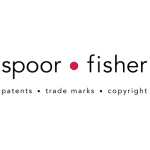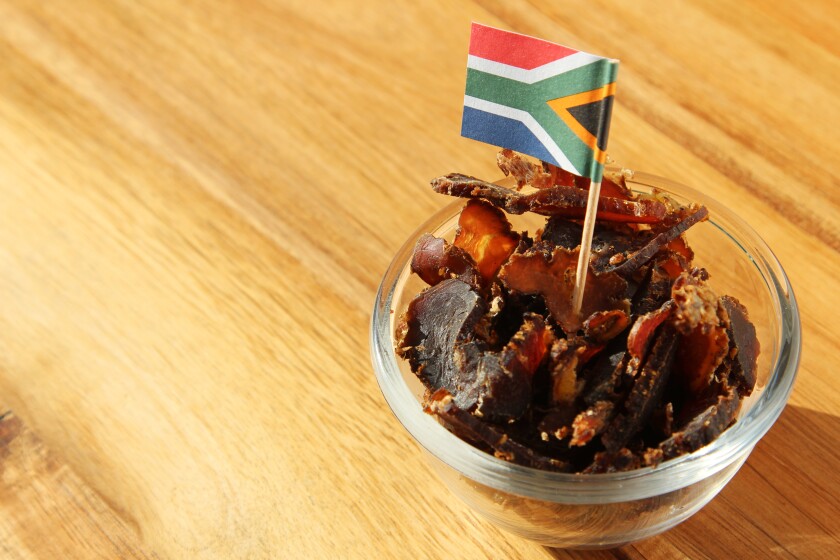This article examines a trademark judgment of the South African Supreme Court of Appeal (SCA), Grupo Bimbo v Takis Biltong, on December 14 2023.
The parties
The appellant, Grupo Bimbo S.A.B., is a Mexican company that trades in South Africa. It has a 2012 South African trademark registration for the mark ‘Takis Fuego’ (stylised) in class 30 for goods including bread and corn chips.
The respondent, Takis Biltong (Pty) Ltd, is a company that is South African to the core – it makes and sells biltong (the ‘superfood’ that fuels the world’s most awesome rugby players, according to certain quarters), and it does this under the trademark ‘Takis Biltong’, for which it has 2007 trademark registrations in class 29, covering meat.
The first court’s finding
Takis Biltong sought a court order to cancel (expunge) the trademark registration for ‘Takis Fuego’. The application was brought under Section 24 of the South African Trade Marks Act, which deals with entries wrongly made or wrongly remaining on the register. The court of first instance ruled against the application, but the full bench of the High Court was satisfied that there was a likelihood of confusion and the registration was cancelled. The judgment was taken on appeal to the Supreme Court of Appeal (SCA).
The judgment of the SCA
The main issues covered are as follows.
Were the marks so similar that there was a likelihood of deception and confusion?
Section 24 of the Trade Marks Act allows an interested party to apply for rectification of the register in respect of an entry “wrongly made in or wrongly remaining on the register”. The application to cancel the trademark registration for ‘Takis Fuego’ was brought under various sections of the Trade Marks Act:
Section 10(12), which deals with a mark that is “inherently deceptive or the use of which would be likely to deceive or cause confusion”;
Section 10(14), which deals with a mark that is “identical to a registered trade mark belonging to a different proprietor or so similar thereto that the use thereof… would be likely to deceive or cause confusion”; and
Section 10(17), which deals with a mark that is identical or similar to a registered trademark that is “well known” in South Africa.
Judge repeats key considerations in trademark cases
Judge Kathree-Setiloane repeated many of the things that South African judges say when they are faced with a trademark infringement case. For example, the court must:
Judge the likelihood of confusion through the eyes of a notional purchaser with average intelligence, proper eyesight, and normal caution;
Consider the dominant features of the marks;
Make a global assessment of the marks – trademarks are remembered by “general impressions or some significant or striking feature and not by a photographic recollection of the whole”;
Avoid the temptation to “peer too closely at the marks to find similarities or differences”; and
Assume “that the trademark applicant will make normal and fair use of its mark”.
Confusingly similar marks
The judge described the “dominant, integral, or essential element” of both marks, the word “Takis”, as an “invented word”. It has an inherent distinctiveness that, the judge suggested, puts it in “the category of a class of trademarks such as… Samsung, Toyota, Motorola, and Nokia”.
On the other hand, “the word fuego [which the judgment accepted as meaning fire in Portuguese]… does not serve to distinguish the marks” and it has “no trademark significance”. It should be pointed out that this firm’s understanding is that the Portuguese word for fire is fogo, not fuego, with fuego being Spanish, a language that is understood by a reasonable number of people in South Africa.
What about the goods?
The SCA held that the goods were also similar, with both being “snack foods”. The evidence showed that “snack foods such as biltong and related snack products are sold… side by side to other snack products including crisps/chips, ice-creams, popcorn, peanuts, and nuts in general”. The judge referred to the famous UK case of British Sugar v James Robertson and Sons (1996), in which the court said that it is necessary to consider:
The respective uses and users of the goods;
The physical nature of the goods;
The trade channels;
The location of goods in supermarkets; and
The issue of whether the goods are competitive.
The result
The registration for ‘Takis Fuego’ had been wrongly entered on the register and it was therefore cancelled.












